PRESS RELEASE Antalya , Turkey, 13 January 2020.
The World Futures Studies Federation (WFSF) , founded in 1973, is the leading international scholarly body of futures studies and also an official consultative partner of the UNESCO. In 2019 the WFSF Executive Board initiated a new category of membership dedicated to the younger generation called the WFSF Junior. School age children can apply to join the WFSF provided that at least one of their parents or legal custodians are already individual, either Full or Associate, members of the WFSF. In this short interview, Director of the WFSF, Victor V. Motti, asks a number of questions from one of the members of the WFSF Junior whose name is Arsam MARDUK born in 2008 in Iran. Another interview with Arsam was published in the September 2019 issue of the WFSF Human Futures Magazine, pages 60-63. He tells now us what are the goals that he wants to achieve in 2020: introducing and spreading Gen Z Futurists Movement and Platorm to the world.
Photo Album
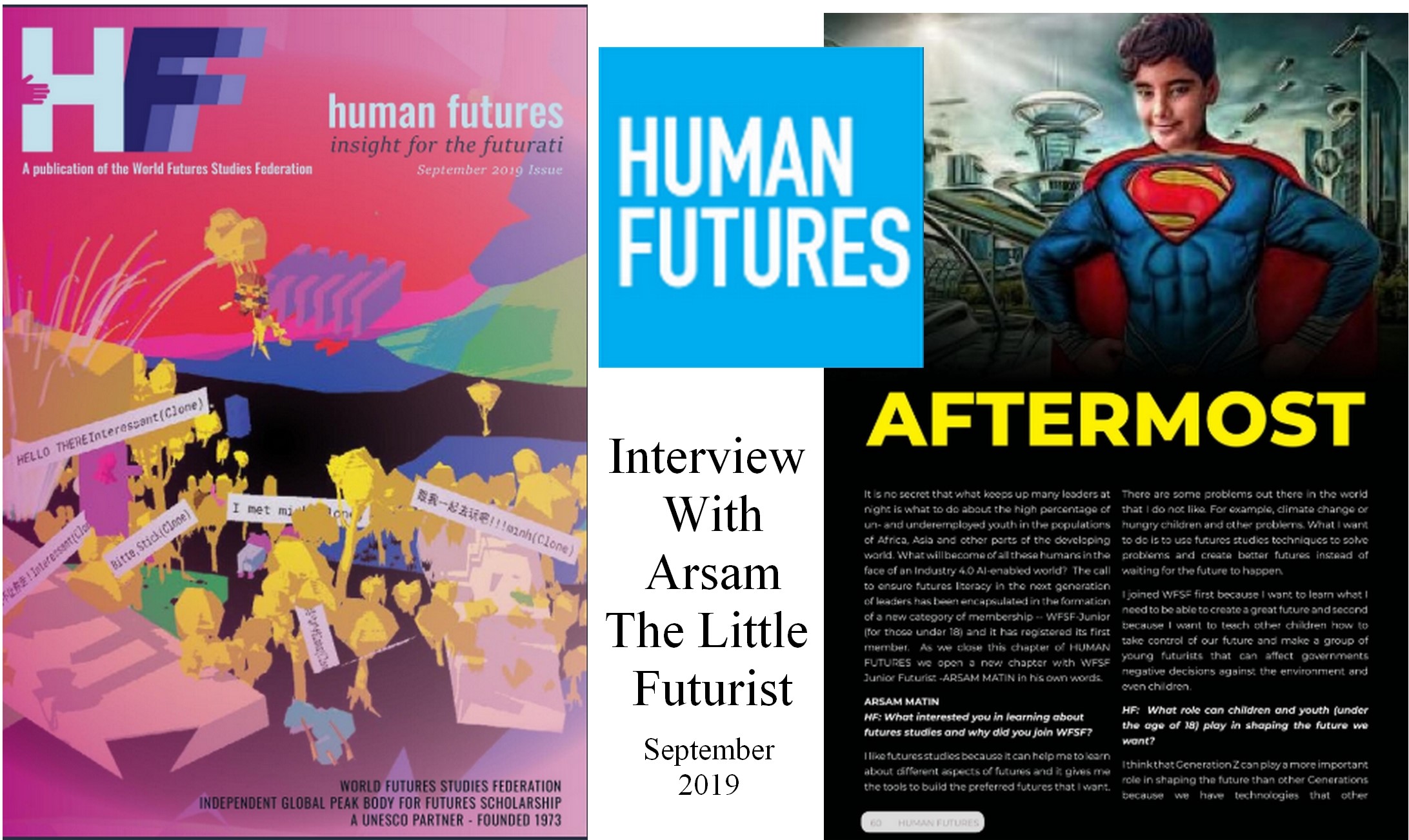
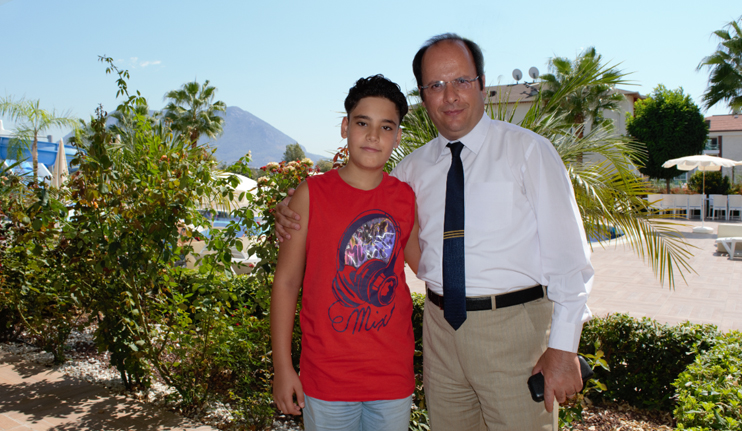
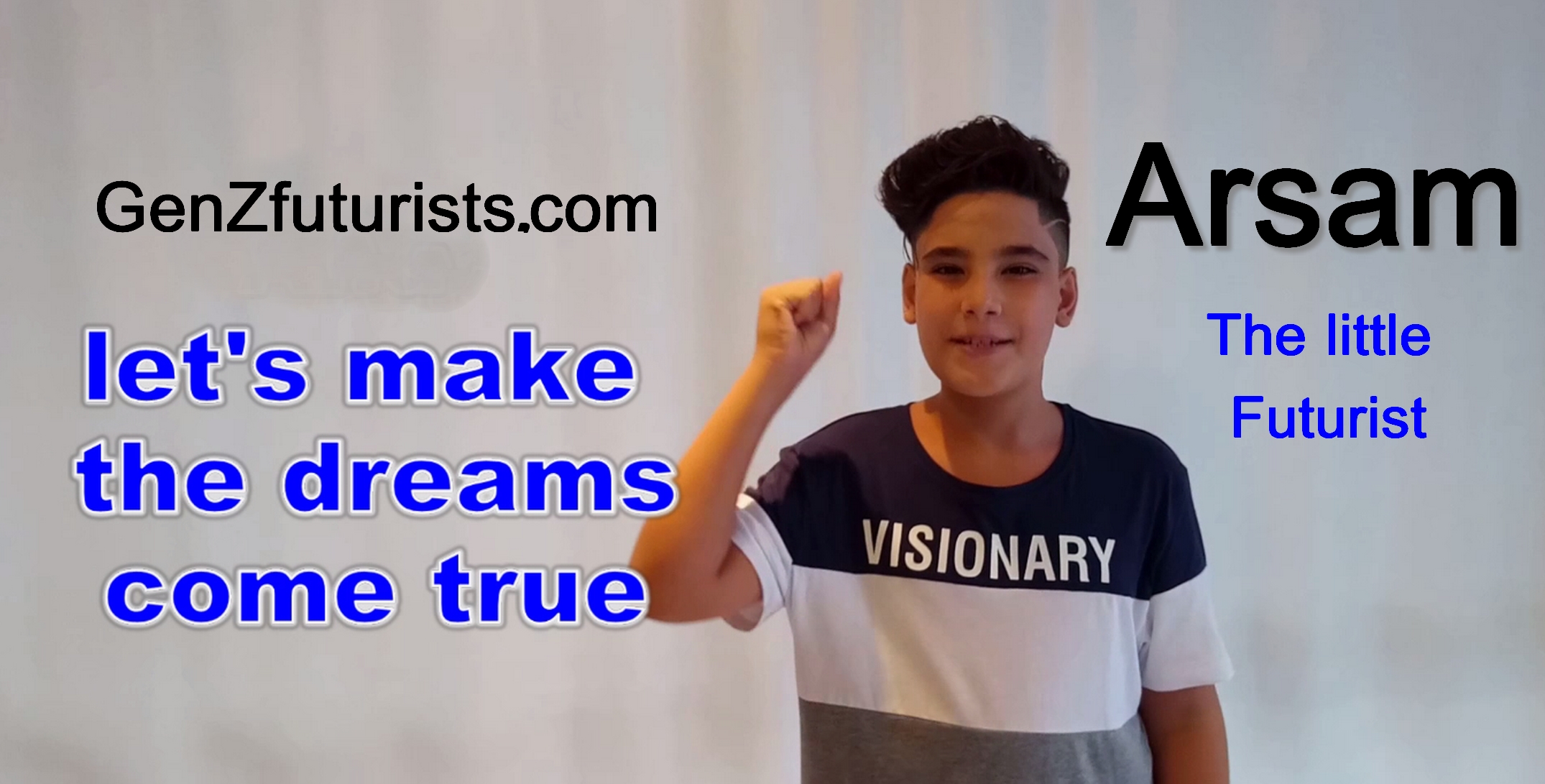
PRESS RELEASE
Medellín Colombia, 5 January 2020.
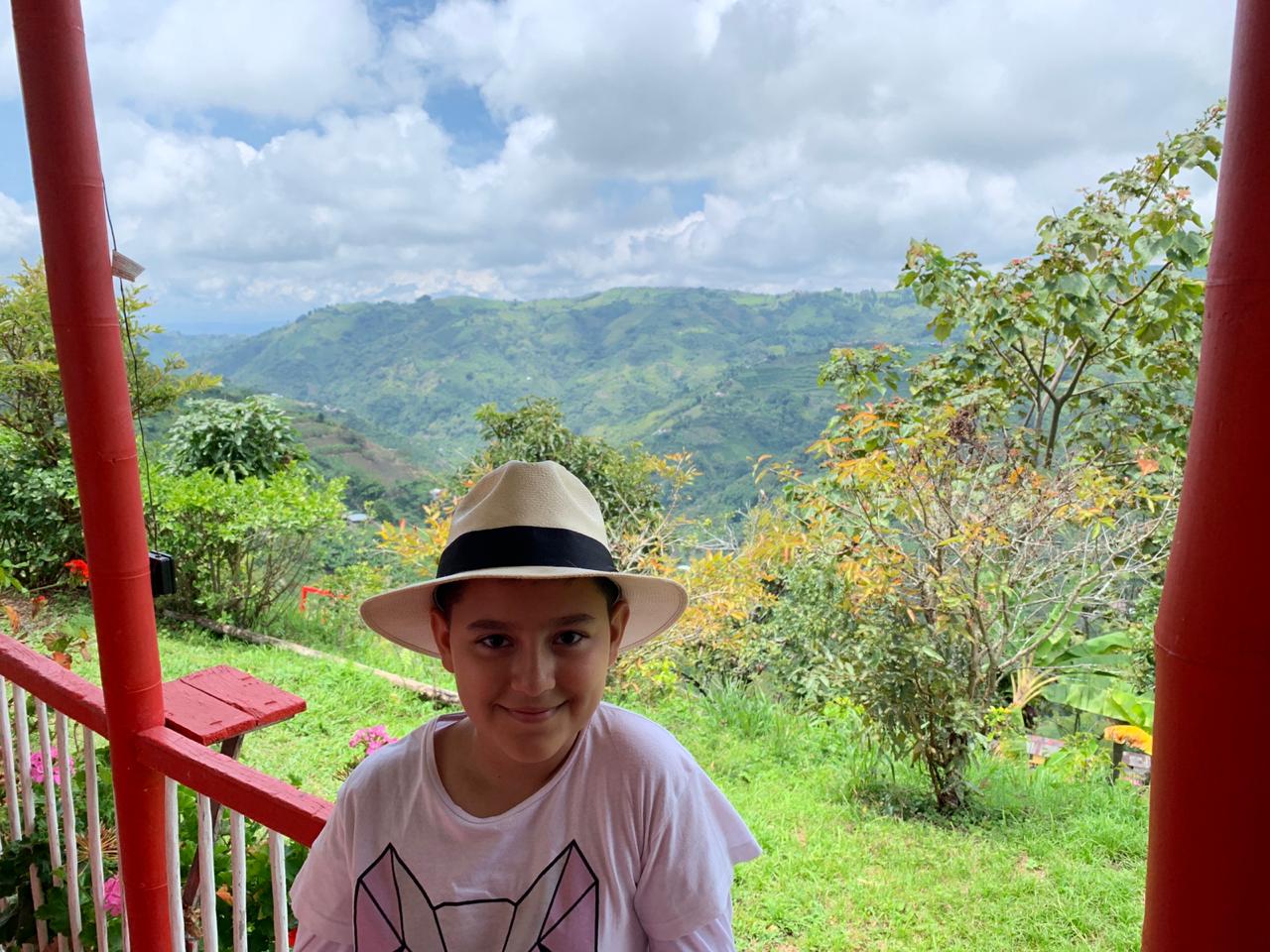
The World Futures Studies Federation (WFSF), founded in 1973, is the leading international scholarly body of futures studies and also an official consultative partner of the UNESCO. In 2019 the WFSF Executive Board initiated a new category of membership dedicated to the younger generation called the WFSF Junior. School age children can apply to join the WFSF provided that at least one of their parents or legal custodians are already individual, either Full or Associate, members of the WFSF. In this short interview, Director of the WFSF, Victor V. Motti, asks a number of questions from one of the members of the WFSF Junior whose name is Andres Felipe CASTELLANOS born in 2007 in Colombia. Andres also attended the 23rd WFSF World Conference in September 2019 which was held in Mexico. He tells us what are the goals that he wants to achieve in 2020: learn about future studies, share with other young people, and to imagine a vision and propose simple actions to realize the desired future.
1- Why and how you decided to join the WFSF? My parents and my uncle work on issues of foresight, strategy and innovation at the Universidad Nacional de Colombia. I have grown wondering about the great opportunities that futures studies have for the development of a better world and through them, about the WFSF. When Arsam, the first junior member was admitted, I was filled with enthusiasm and wanted to participate as well. I am very grateful for the opportunity that WFSF has given me, to join as a junior member.
2- Will you talk to your friends and classmates about the WFSF? How do they react to the news that you joined? Yes, of course. When I returned from Mexico to Medellin, I spoke in my school with professors and classmates about the world congress, the significance of futures studies and the importance that researchers are giving to the participation of children and young people in the search for a better future for everyone. As a student representative in my school, I have sought that in our community we are more interested in exploring our future, and I even had the opportunity to participate in the World Zero Emissions Congress in my country, where I presented an initiative to plant trees as a way of acting to have a better environment. My classmates were interested when I explained that the future is also a field of study on which we can reflect creatively. When we study the future, this helps us to become more responsible for our actions and decisions in the present.
3- Are you happy with your school teaching, will the classes prepare you for the future? My teachers are wonderful, they try to make the classes interesting and critical. I believe that our teachers, each in their own way, strive to prepare us for the future, but sometimes, the rigidities of the curricula do not give them many opportunities. In my country, today, we urgently need to develop an integrating vision of the future, which allows each Colombian to get his best values and skills.
4- What were the most important news in your life? And what you like to hear in the news in 2020s? The recent news that has impacted me the most are the following:
1. The plastic island in the Pacific Ocean.
2. The death of bees and the continued use of glyphosate.
3. The peace agreement in my country.
4. Authorization by the government of my country to allow shark hunting, for the sale of its fins.
5. Forest fires in the south American Amazon and climate change.
6. Citizen protests, interested in a better-quality education
By 2020:
1. More biodegradable plastic
2. More trees planted in my country
3. A more inclusive and participatory democracy
4. That politicians in my country think about future studies and a vision of greatness for Colombia
5- What would you do if you were in a powerful position in your country or community? I would like to make democratic decisions, with the participation and empowerment of the community. But what my country needs most, are opportunities for young people, who grow up in a framework of great inequality. It is necessary to reduce poverty and violence. I believe that a better education is the way for young people to have a better future.
6- What do you often do to increase your imagination and creativity? I like reading books, watching videos and learning new things. My imagination increases when I know about solutions in other contexts and try to apply them in my local environment. Although the school teaches us new things, I think it is important that every child can get excited about exploring their own projects, and imagine innovations in them, thinking about the future. I think we become more creative when we project our interests into the future.
7- What do you expect to obtain or benefit from your membership in the WFSF junior? I hope to learn and participate in the activities of the congresses, as I was allowed in the World Congress in Mexico. I would even like to present a paper, which I have already been thinking about.
Overall, I am amazed to be able to learn about the achievements and experiences of the members of the Federation every day and try to understand their research.
I want to continue learning, from the hand of the great leaders that for me are the members of the Federation. I hope to share also with my classmates and friends, about the visions and lessons that studying the future can bring us.
I would like to take this opportunity to make a proposal: how about doing an online course on futures studies for us children? Thank you!
Photo Album

Andres with the WFSF President Erik Øverland in the 23rd WFSF Conference in 2019 in Mexico
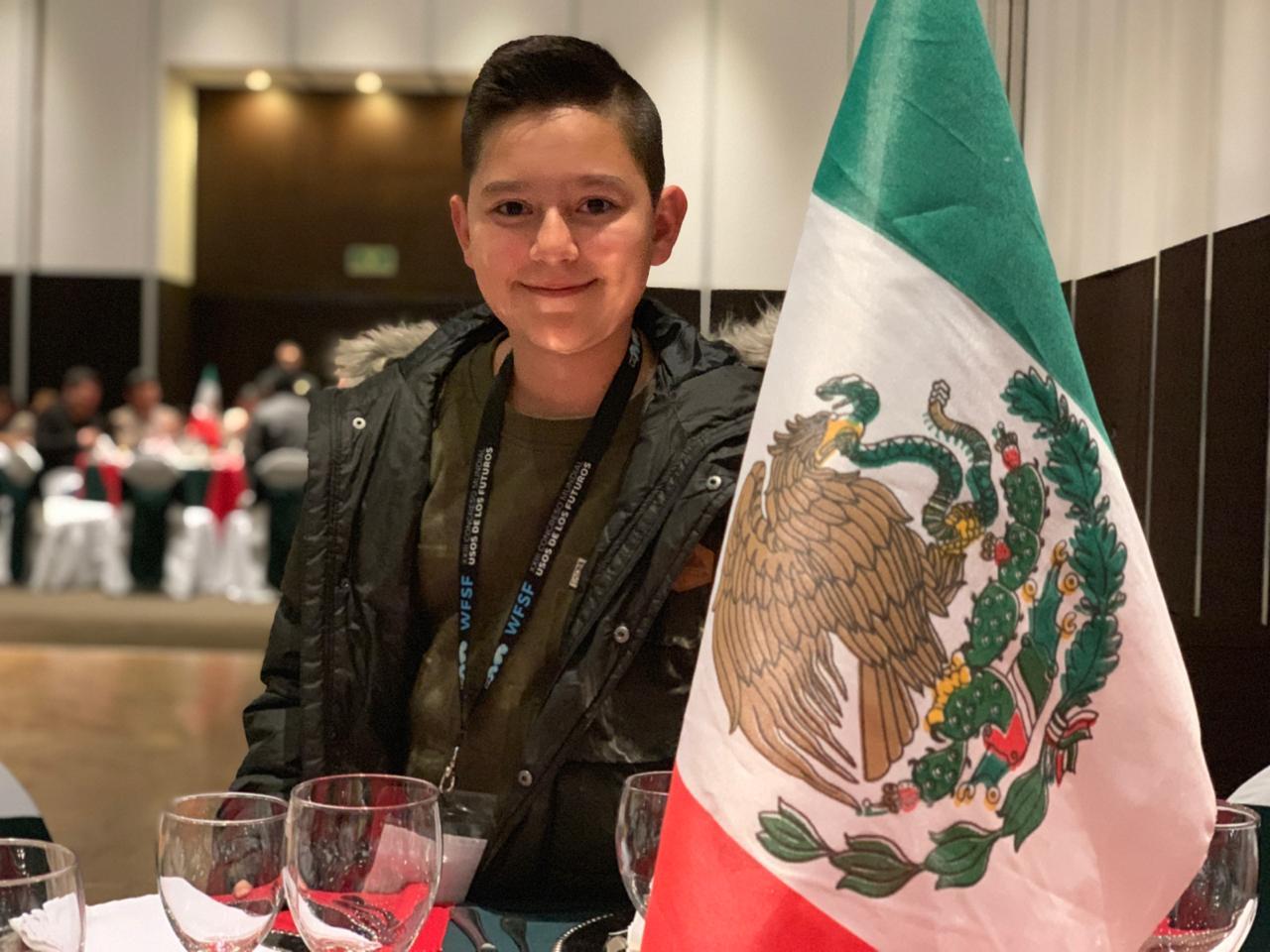
Andres in the 23rd WFSF World Conference, Mexico, 2019
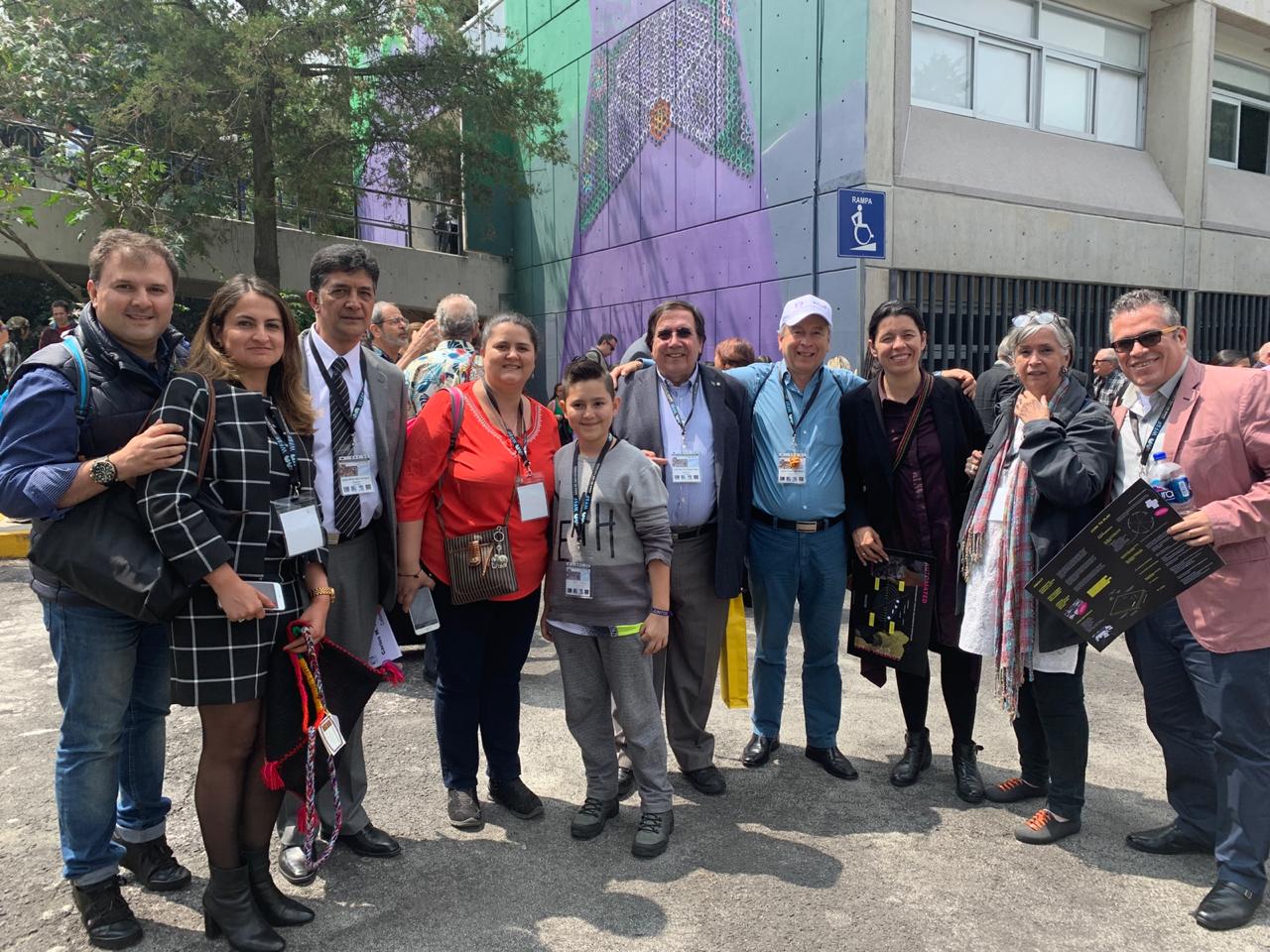
Group of futures researchers from Colombia in the 23rd WFSF Conference in 2019 in Mexico.
From left to right:
Iván Alonso Montoya – WFSF member, Universidad Nacional de Colombia
Caroll Alean Mahecha- Universidad Externado de Colombia
Carlos William Mera – Universidad Nacional a Distancia
Luz Alexandra Montoya – WFSF member, Universidad Nacional de Colombia
Andres Felipe Castellanos – WFSF Junior member, Colombia
Lucio Mauricio Henao – WFSF Executive Board Member, Colombia
Yezid Soler B. — WFSF member, Ministerio de vivienda, ciudad y territorio
Tatiana Bernal- Universidad Externado de Colombia
Martha Lucia Jaramillo – Proseres
Andrés Restrepo Ayala- WFSF member, Universidad Pontificia Bolivariana
